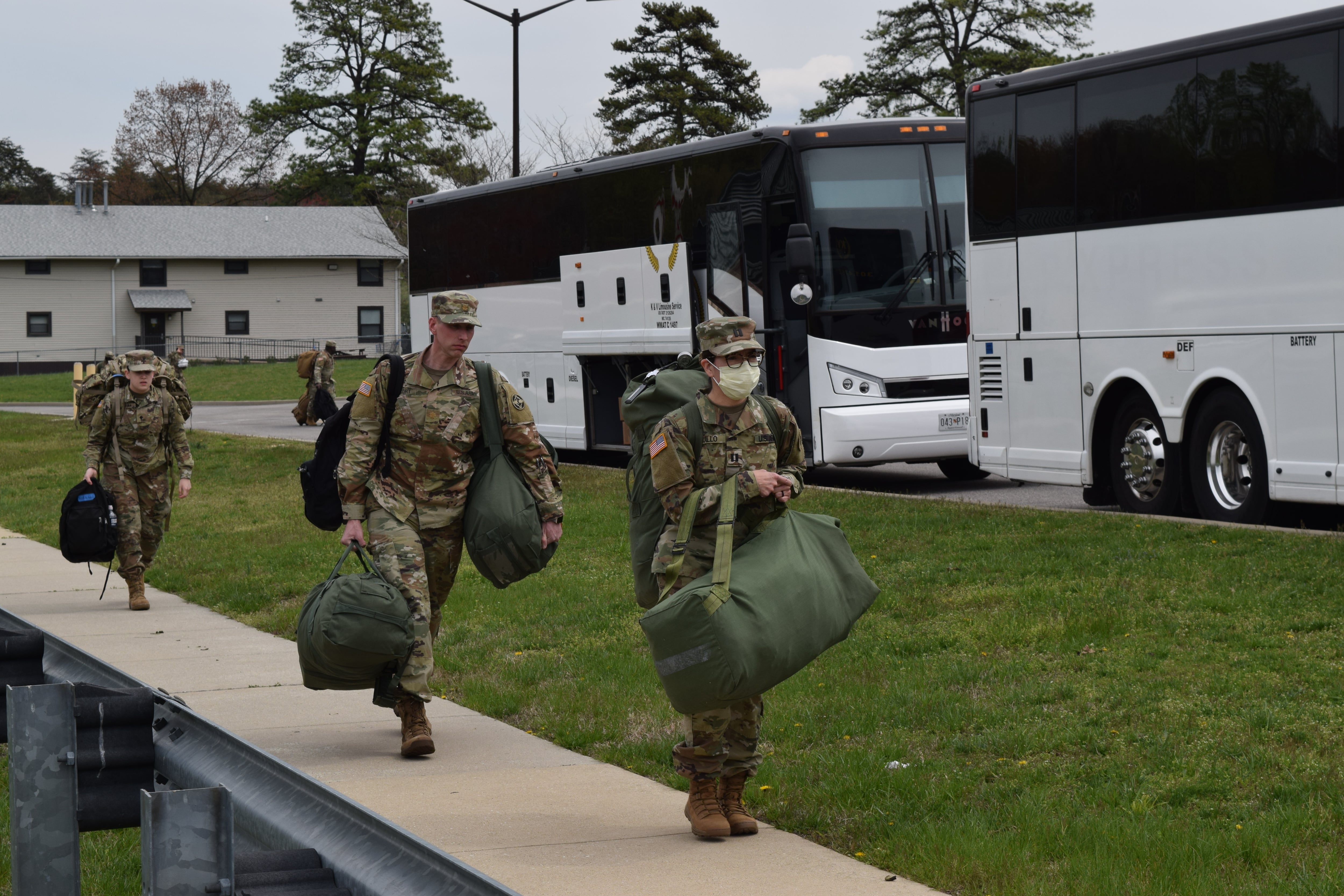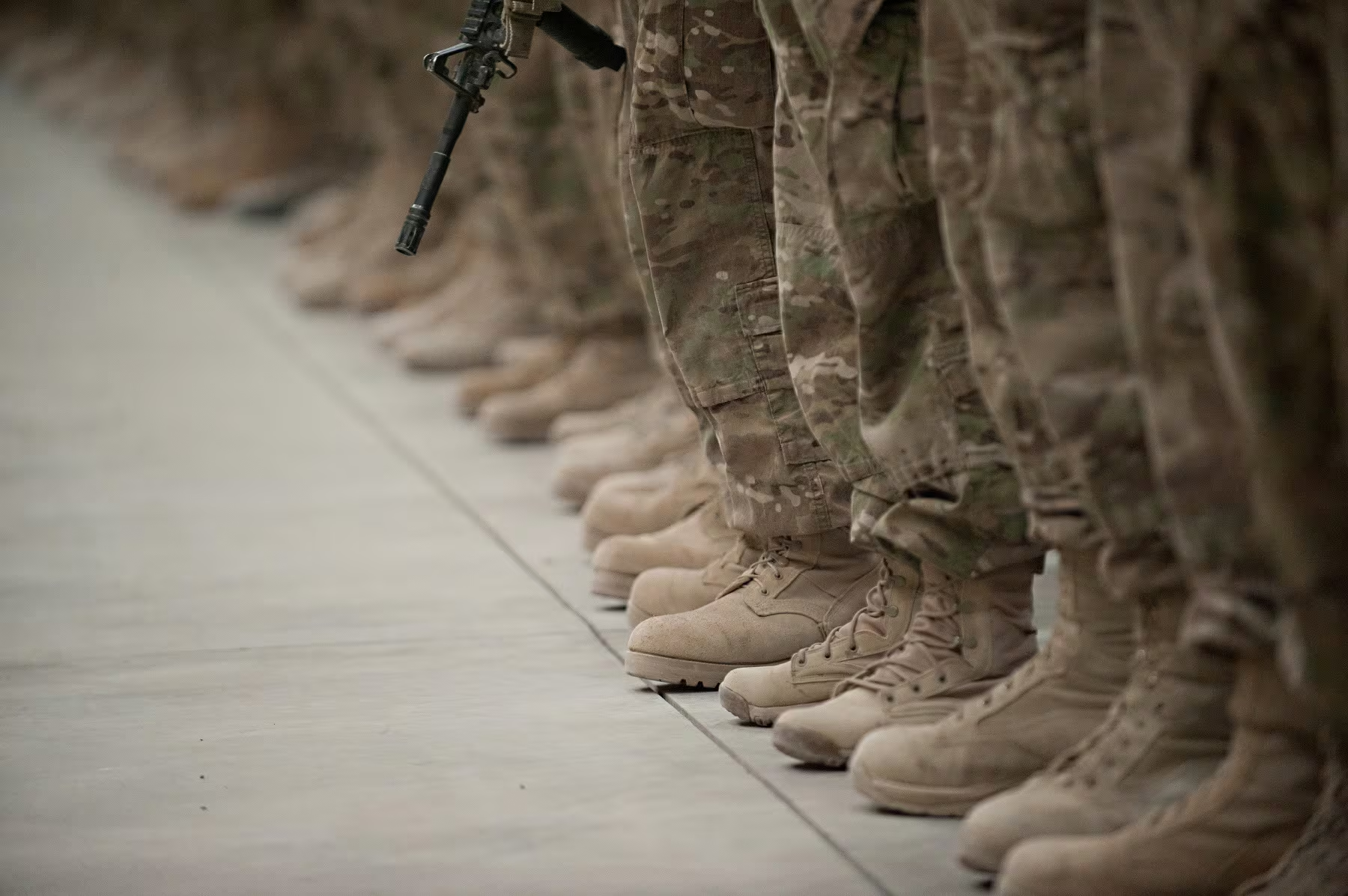Roughly 25,000 people have responded to the Army’s call for volunteers to assist with the coronavirus response after the service sent emails to 800,000 former soldiers gauging their interest in returning to duty.
The Army is still looking for more personnel, officials said. And though the preference is for those who are currently licensed in medical fields, other former soldiers can also volunteer.
Interested individuals should visit the Human Resources Command website and fill out the voluntary recall survey, said spokeswoman Lt. Col. Mary Ricks.
“If we need their specialty, then our [Reserve Personnel Management Directorate] team will reach out to them,” Ricks said.
The respondents so far have been from a mix of backgrounds, including from services other than the Army, and not all of them served in medical specialties. The original email soliciting volunteers asked for personnel from a series of heath care careers, including critical care officers, various nursing specialties and former medics.
The Army’s top medical officer said March 26 that the volunteers could be used to fill the roles of current medical personnel normally assigned to installation treatment facilities who may be called upon to deploy elsewhere in the United States.
Volunteers would be leveraged alongside Army reserve soldiers "to fill those holes from the medical treatment facilities, so we can maintain the readiness of our soldiers, as well as the beneficiary population,” Army surgeon general Lt. Gen. Scott Dingle said.
Human resources specialists are currently screening volunteers and checking their certifications. However, the service is trying to not mobilize those actively serving in civilian medical jobs.
RELATED

“If individuals are already serving in their local communities, we are proud of their service, and want them to continue serving in those communities as this effort is not to detract from current community support, but to enhance it,” said HRC deputy commander Brig. Gen. Twanda E. Young in a news release.
The Army plans to identify and vet the volunteers, match them to the right roles and then cut new orders for those veterans. The service wants to get volunteers on orders as quickly as possible, but “we have to take into consideration they must get life affairs straight and give them the necessary time," Young added.
It remains unclear how long mobilization would last for those who are selected to receive orders. Army officials also did not say how many volunteers they’re seeking. The total number could prove to be a moving target.
The fast changing nature of the pandemic has resulted in some wasted effort. An Army field hospital dispatched to Seattle was told it was no longer needed just days after setting up, because enough ad-hoc civilian medical facilities were established in Washington state to handle the spike in COVID-19 patients.
Elsewhere in the country, COVID-19 cases are still surging and many states expect to hit their peak in cases towards the end of April.
“We understand the urgency, thus we are working multiple shifts to sift through screening volunteers to get them at the point of need," Young said.
Kyle Rempfer was an editor and reporter who has covered combat operations, criminal cases, foreign military assistance and training accidents. Before entering journalism, Kyle served in U.S. Air Force Special Tactics and deployed in 2014 to Paktika Province, Afghanistan, and Baghdad, Iraq.




